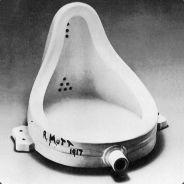Anno: "I don't hate Star Trek, but I'm not impressed by it. You can see the arrogance of America in it. It's a story of influencing or enlightening native peoples of destination planets, that features romance with their most admirable woman in a front-line way. I feel like this is American imperialism itself.
It's like Marxists are portrayed as being primitives. I can't get used to that kind of American worldview. I think the Enterprise is cool, but that's all."
庵野: 『スタートレック』は嫌いじゃないですけど、そんなにはまってはいないんです。なんかアメリカ人の傲慢さが見えててね。行く先の星々の原住民を感化していくというか啓蒙していく話や、最前線の基地では、そこの一番偉い女性とロマンスがある。もう、アメリカの帝国主義そのものという気がしてね。なんかこうマルクス主義の人たちが、原始的なものとして描かれてますよね。ああいうアメリカ的な世界観というのには、どうもなじめなくて。エンタープライズ号は、カッコいいと思うんですけどね。」


from qmisato https://qmisato.tumblr.com/post/168590592057/hideaki-anno-greatest-hits-anno-listing-tom-and
deleted by creator
Damn, he used きらい? That's as close as most Japanese people will get to saying that they fucking hate something.
For reference, "kirai" which he used, is generally an intense dislike, bordering on hatred. For regular dislike most Japanese people use "好きじゃない", which is literally "do not like".
Really? My Japanese still isn't really fluent after 10 years, but I don't take it that way. 「嫌いだ」 can be pretty close to "fucking hate." 「きらいなんですよ」 is more like "I really dislike," and almost sounds like he's explaining why he won't eat the broccoli.
My understanding is that 大嫌い is close to "I really (fucking) hate" but its considered crass to use it in a context where you're not super close to the person you're speaking with.
At the other end of the spectrum, people who are trying to express a neutral-ish dislike for something will use "好きじゃない", often softened with "あまり".
So to me, "きらい" implies a strong dislike, bordering on hatred because its stronger than "好きじゃない", but of course direct translations are always a shitshow.
The "なんですよ" part I just take to be a linking flourish to the question or previous sentence.
This is just based on some classes and my observations of native speakers using it in every day practice. So if a native speaker wants to chime in I'm happy to be corrected.
I always feel like I glean as much meaning from those "linking flourishes" as the specific words used. I take なんです as kind of a softened version of the explanatory の (compare the feminine なの), and ですよ is pretty easygoing overall (not that these are really "words" that people think about). So I take きらいなんですよ as almost "I just hate it, you know?" It's certainly not diplomatic, but it's not scandalous either.
大嫌い is pretty much 嫌い with an intensifier, so yeah "fucking hate" instead of "hate." (And putting it that way makes me wonder if anyone's tried to say 超嫌い or 極嫌い seriously in a fight, and how hard their opponent laughed at them when they did.)
EDIT: Maybe the thing that makes me feel this way is that 嫌い, although it means "hate", is an adjective. So although the translation has Miyazaki just piping up with "I dislike western civilization," in context it's more like he's (slightly facetiously) offering an explanatory addendum to what Oomori said. Evangelion is more along the lines of western civilization, and of course western civilization is hateful/distasteful/(non-existent-English-adjective-stronger-and-more-personal-than-"distasteful")---you can't trust it.